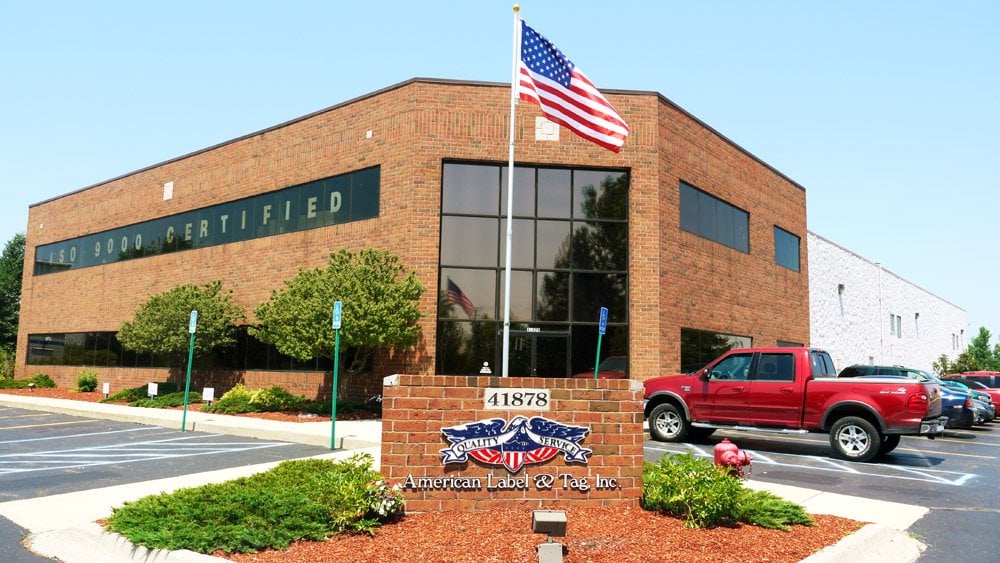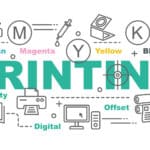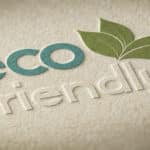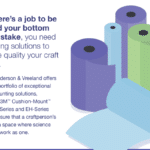Helping American Label & Tag Deliver Technically Demanding Labels
Survivor: Not all Labels are Created Equal
It helps us if we have smarter vendors, and Anderson and Vreeland is a great example of how a smarter vendor benefits its customers.
Some labels have a really hard life, like the ones placed on the engine blocks of a major diesel engine manufacturer. After the labels are applied, the engine blocks are coated in a greasy rust inhibitor so they can withstand the salt air of transoceanic shipping. Once off the ship, the blocks go through a high-pressure wash with solvents and hot soapy water. The labels have to remain attached and unwrinkled through all of this, to ensure successful passage past a barcode reader. Making sure the labels are up to these demands requires significant engineering backed by a deep understanding of the materials and adhesives used. Such expertise is part of nearly every job at American Label and Tag (ALT), a Canton, Michigan specialist in the production of technically demanding labels for a variety of industries including airlines, appliances, automotive, chemical, electronics, food and beverage, pharmaceutical, retail, and video/entertainment.
“All the labels we produce are high tech, industrial-strength labels that have to stay attached throughout the manufacturing process and normal usage in different countries,” explains Paul Gubbins, IT Manager and a 23-year veteran of industrial label production at ALT. “They’re all complex labels that require a lot of engineering and testing.”
Some, like pharmaceutical labels, require special expertise. Pharma labels have to meet FDA standards, run on special lines at converters, and incorporate multiple layers of security. Producing and handling them is a real challenge because more than any other label, they have to be absolutely right every time.
Attentive expertise
“Whatever the label, our customer—the user—does the preliminary engineering and asks for certain characteristics. We explain what can really be done and figure out how to make it work. We know the materials, the substrates, adhesives, and so on, but we don’t know everything, so we ask Anderson & Vreeland for help.”
Gubbins recounts the need for attentive, personalized service and sought a company that could provide not only product support, but which had the expertise and technical knowledge to augment any gaps ALT may have. “Our customers expect us to be experts on labels and we in turn rely on A&V so we can provide the best support possible for our customers. We know a lot, and much of what we know about the latest materials and adhesives and printing technology comes from Anderson & Vreeland.”
The level of support provided is vital, says Gubbins. “The A&V people always keep in touch, often just stopping in, talking to our operations people, giving low key updates on products and technology. They’ll help us fingerprint a press, help us with color curves, and provide the technical support we need.”
ALT has adopted products from A&V partner companies such as Hybrid Software, GMG and Screen, to solve challenges that were more expensive to address via the solutions provided by another company. “Hybrid, GMG and Screen have all provided the same high level of support we get from A&V,” says Gubbins. “This lets us push the limits more, and having more capabilities is beneficial for our customers.”
Synergy
Gubbins has found that A&V reps listen to ALT’s needs and knows that solving a problem for his company very often helps A&V solve a problem for another firm. The synergy comes when what A&V learns somewhere else helps solve a challenge for ALT. “We learn from each other,” he says. “It helps us if we have smarter vendors, and Anderson and Vreeland is a great example of how a smarter vendor benefits its customers.”




